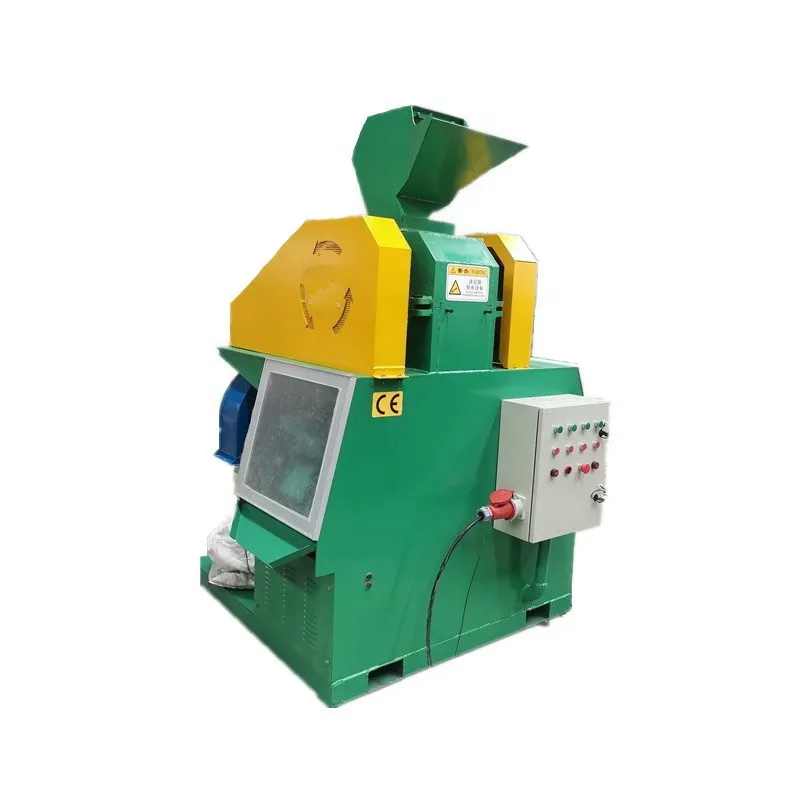

ທ.ວ. . 16, 2024 04:02 Back to list
Metal Shreds The Unsung Heroes of Recycling and Sustainability
In the modern age, where industrialization meets environmental consciousness, metal shreds have emerged as an essential component of sustainable practices. These remnants of various processes—be it manufacturing, machining, or demolition—have garnered attention for their potential in recycling and reinvigorating the economy. Understanding the importance of metal shreds, their processing, and their eventual applications can shed light on their role in a greener future.
Metal shreds are essentially small particles or scraps derived from cutting, grinding, or breaking down larger metal pieces. They come from a wide array of industries, including automotive, aerospace, and construction. These shreds, often viewed as waste, are actually rich in potential and represent a treasure trove for recycling initiatives. Metals such as aluminum, steel, copper, and brass can often be found among these shreds, each valuable in their own right.
The process of recycling metal shreds begins with collection, which typically occurs through various industrial sources, waste management systems, and dedicated recycling facilities. Once collected, these shreds are sorted according to their type. This sorting is crucial, as different metals possess different properties and values. For instance, aluminum is lightweight and resistant to corrosion, while copper is highly conductive, making both materials desired commodities in their respective fields.
After sorting, the metal shreds undergo shredding and further processing to achieve the desired size and purity. This not only makes transportation and handling easier but also maximizes the value of the metal for subsequent use. Shredding involves reducing the size of metal scraps into smaller particles, which can then be melted down and transformed into new products. This process conserves energy, reduces greenhouse gas emissions, and minimizes the need for virgin materials.

One of the most compelling aspects of metal shreds is their versatility
. Recycled metals can find new life in countless applications. For instance, recycled aluminum can be remade into new cans, automotive parts, or building materials, while recycled steel is often used in construction, plumbing, and appliances. This closed-loop recycling process not only preserves resources but also significantly reduces the environmental footprint associated with metal production.Moreover, the recycling industry surrounding metal shreds plays a crucial role in job creation and economic growth. The collection, processing, and distribution of these materials provide a myriad of employment opportunities. From manual labor positions in sorting facilities to skilled roles in processing plants, the recycling sector is a viable source of jobs that support local economies.
It is also worth mentioning the environmental benefits of recycling metal shreds. When metals are recycled, the energy savings can be substantial. For example, recycling aluminum saves up to 95% of the energy required to produce new aluminum from raw materials. Additionally, by reducing the demand for virgin metals, recycling helps conserve natural resources, protect ecosystems, and reduce the carbon emissions associated with mining and refining processes.
People tend to underestimate the significance of metal shreds, often dismissing them as mere waste. However, by adopting a more sustainable outlook, we can recognize metal shreds as crucial players in recycling efforts. Their contribution to economic growth, energy savings, and environmental protection is invaluable.
In conclusion, metal shreds are far more than industrial waste; they are the foundation of a sustainable recycling economy. By effectively collecting, processing, and repurposing these materials, we can foster a culture of resourcefulness that not only benefits businesses and communities but also the planet. Embracing the potential of metal shreds is a step toward a more sustainable future, ensuring that we responsibly manage our resources while paving the way for innovation and growth. As we move forward, it is essential to support the recycling industry and emphasize the importance of recycling metals, transforming what is often considered refuse into valuable resources for generations to come.
Latest news
Troubleshooting Common Eddy Separator Problems
NewsJul.04,2025
The Role of Metal Recycling Plants in Circular Economy
NewsJul.04,2025
The Impact of Recycling Line Pickers on Waste Management Costs
NewsJul.04,2025
Safety Features Every Metal Shredder Should Have
NewsJul.04,2025
How Industrial Shredders Improve Waste Management Systems
NewsJul.04,2025
How Cable Granulators Contribute to Sustainable Recycling
NewsJul.04,2025